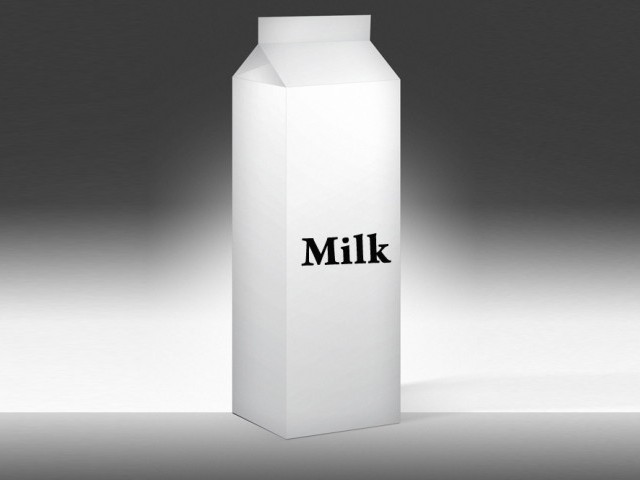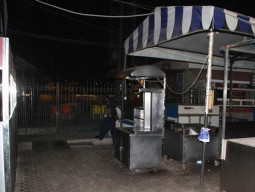
The import volume could rise further as Russia has stopped buying food products from European countries in the wake of a standoff over the Ukrainian crisis. Experts suggest that levy of heavy duty on the import of milk and whey powder will not only shield the local industry, but will also generate revenue for the government.
The time is ripe for Pakistan to slap higher duties on milk powder import in an effort to protect investments in the country as well as make the country an exporter to world markets such as Russia, China, Malaysia, India and Indonesia.

At present, the livestock sector grows 2-2.5% annually, but has a huge potential to grow rapidly and take Pakistan into the ranks of exporters.
According to the United Nations Comtrade database, in 2012 approximately 35 million kg valuing $102.1 million and in 2013 approximately 22 million kg valuing $70.7 million worth of milk powder was imported by Pakistan.
In 2012 and 2013, whey powder imports were 19.5 million kg valuing $13.4 million and 18.3 million kg valuing $15 million respectively.
In the last few years, the import of skimmed milk powder, especially from India, has increased sharply and some of the local milk sellers have started manufacturing different products using skimmed milk powder, whey powder and other ingredients.
Confectionery and sweet-makers have also switched from locally produced raw milk to cheaper and low-quality skimmed milk and whey powder.
Professor Dr Talat Naseer Pasha, Vice Chancellor of the University of Veterinary and Animal Sciences, Lahore says regional countries like India and Turkey have imposed heavy duties on the import of milk powder for the protection of local industry.
India has levied 68% duty whereas Turkey has 180% duty. But in Pakistan, the duty rate is very low at 20% for members of the South Asian Association for Regional Cooperation (Saarc) and 25% for the rest of the world.
“The growth in the local dairy industry can help farmers to meet day-to-day expenses,” Pasha says, suggesting the government should impose import duty in order to protect the sector’s investment.
Pakistan has huge livestock farms but investment has been held back due to the flood of imported milk powder. “We can become an exporter of milk powder if investments pour in,” he says.
There is a misconception in the dairy industry that skimmed milk and whey powder is imported to bridge the seasonal gap between demand and supply of milk in the country. An analysis of the import trend clearly indicates a link with the prices. When prices drop in the international market, imports into Pakistan go up and vice versa.
“This means that cheap milk and whey powder is used as a substitute for the locally produced raw milk,” Pasha says.
The bulk of imported milk powder is consumed by the dairy processing industry to come up with different recipes including tea whiteners and dairy liquids.
According to industry sources, the share of these products went up to 59% in ultra-high-temperature (UHT) processed product sales in 2014 while the share of plain milk stood at 41%.
No quality inspection
Sources point out that milk powder is largely imported into Pakistan without any application of health and safety protocols. On the contrary, imports go through strict health and safety checks and require certification in other countries.
For instance, whey powder is of different qualities, some of which are for animal consumption only and are sold at much lower prices. However, in Pakistan there is no quality check to see whether the imported stuff is fit for human consumption.
According to sources in the Punjab Livestock and Dairy Development Department, many loose milk suppliers in urban areas are purchasing unhealthy milk being produced in peri-urban regions using substandard skimmed and whey powder and other chemicals and ingredients, instead of buying pure milk from dairy farmers.
This unhealthy milk is much cheaper compared to the pure milk produced in thousands of dairy farms across the country.
Unfortunately, the unregulated import of milk powder along with its smuggling has provided an opportunity to the players involved in loose milk handling and supplies to play with consumer health.
THE WRITER IS A STAFF CORRESPONDENT
Published in The Express Tribune, May 4th, 2015.
Like Business on Facebook, follow @TribuneBiz on Twitter to stay informed and join in the conversation.
































1714024018-0/ModiLara-(1)1714024018-0-270x192.webp)









COMMENTS (3)
Comments are moderated and generally will be posted if they are on-topic and not abusive.
For more information, please see our Comments FAQ